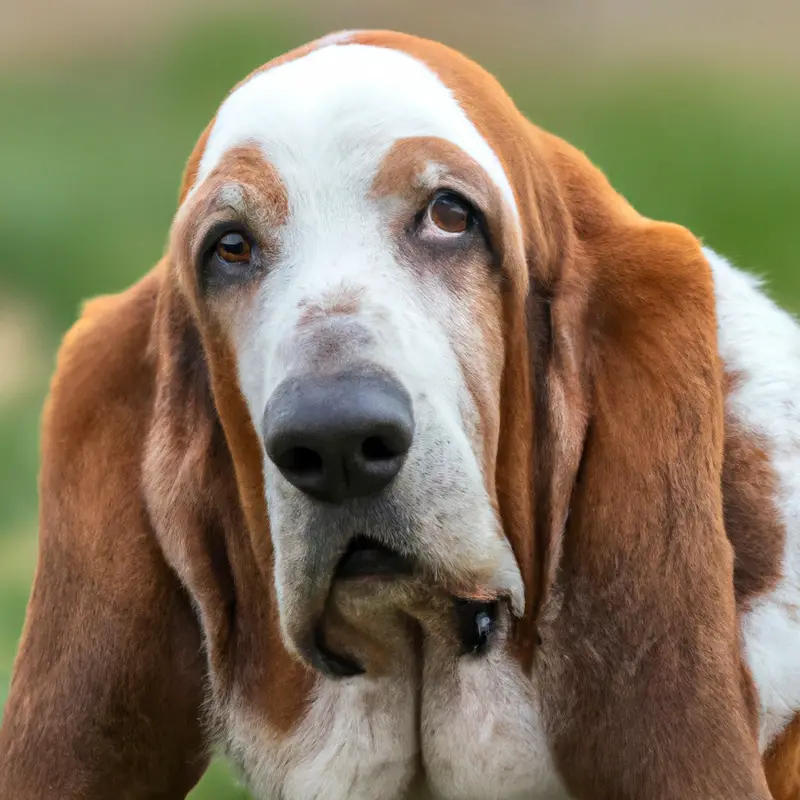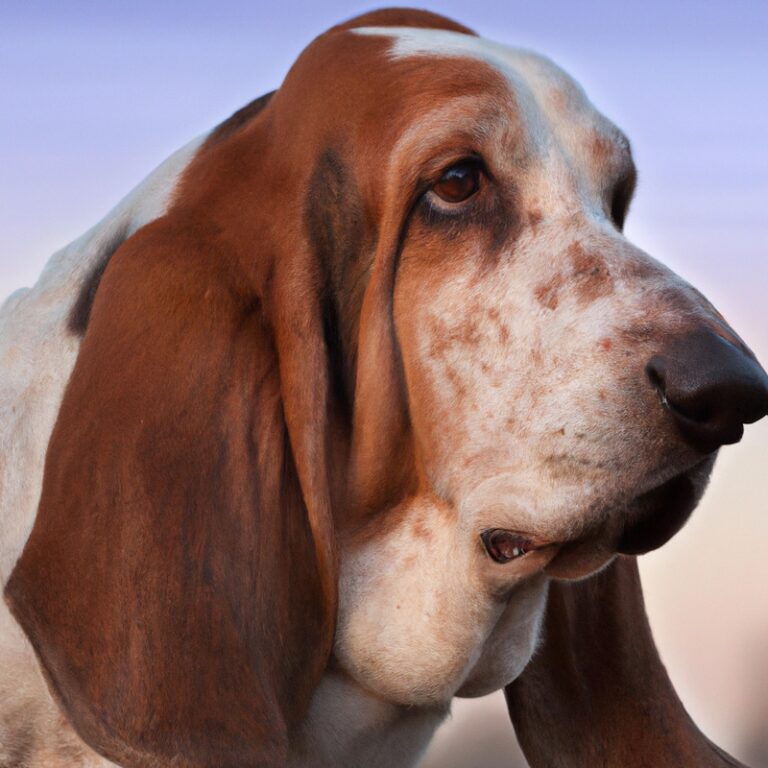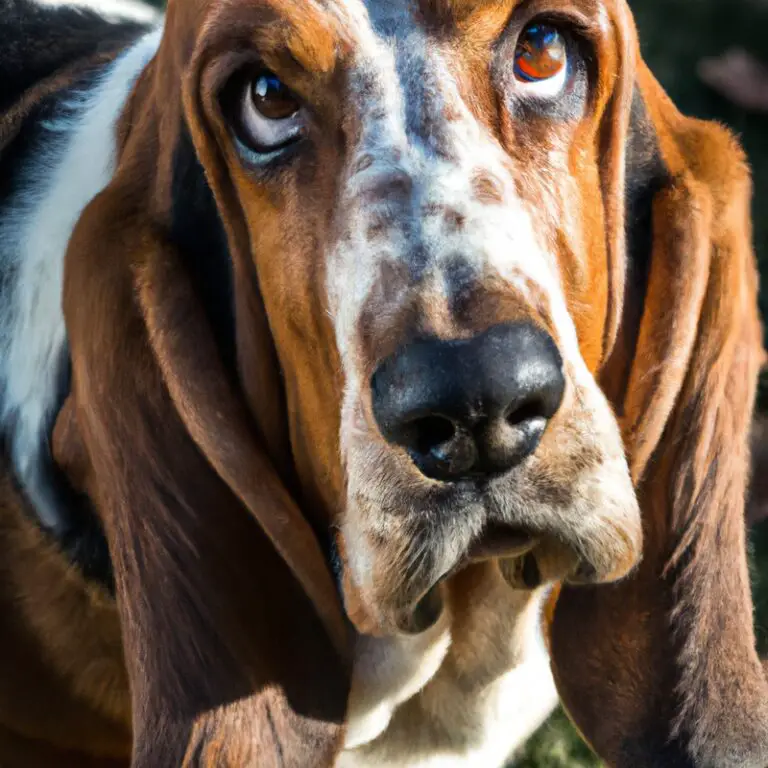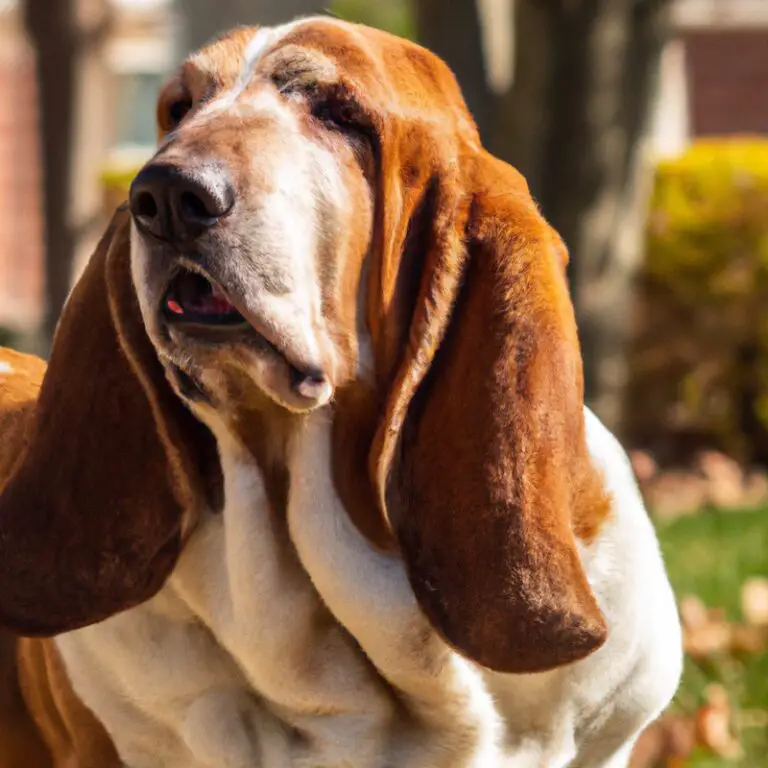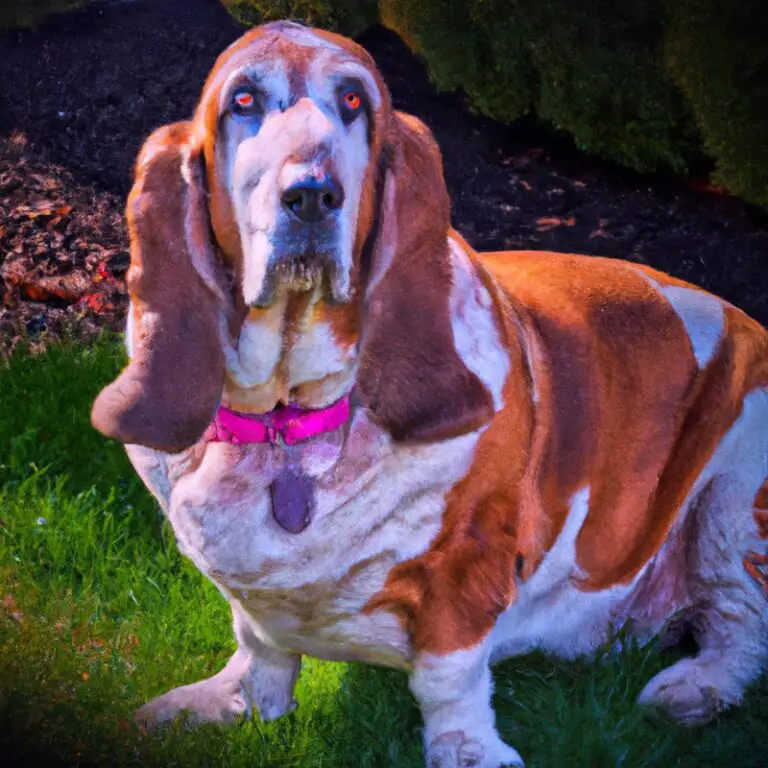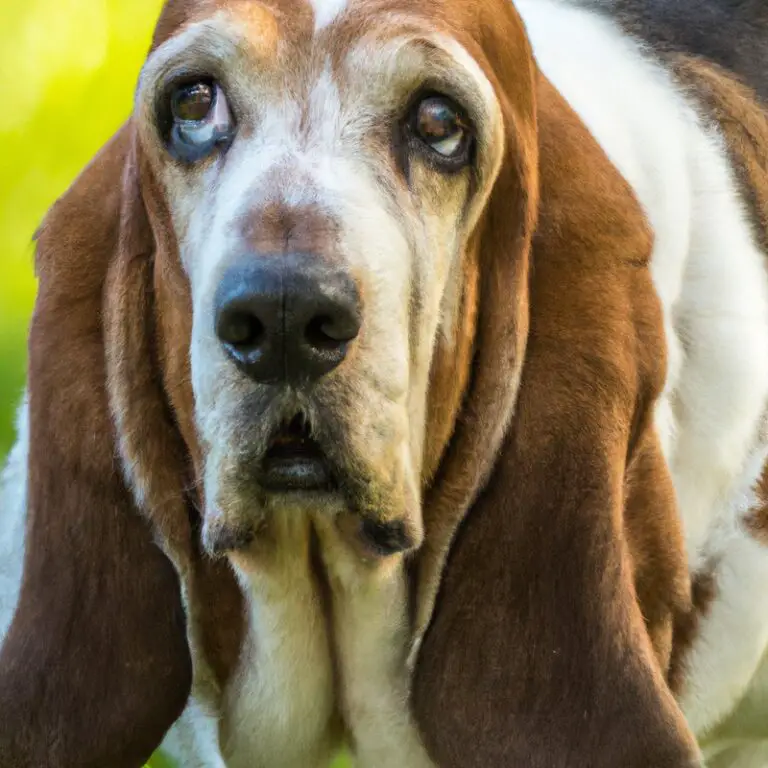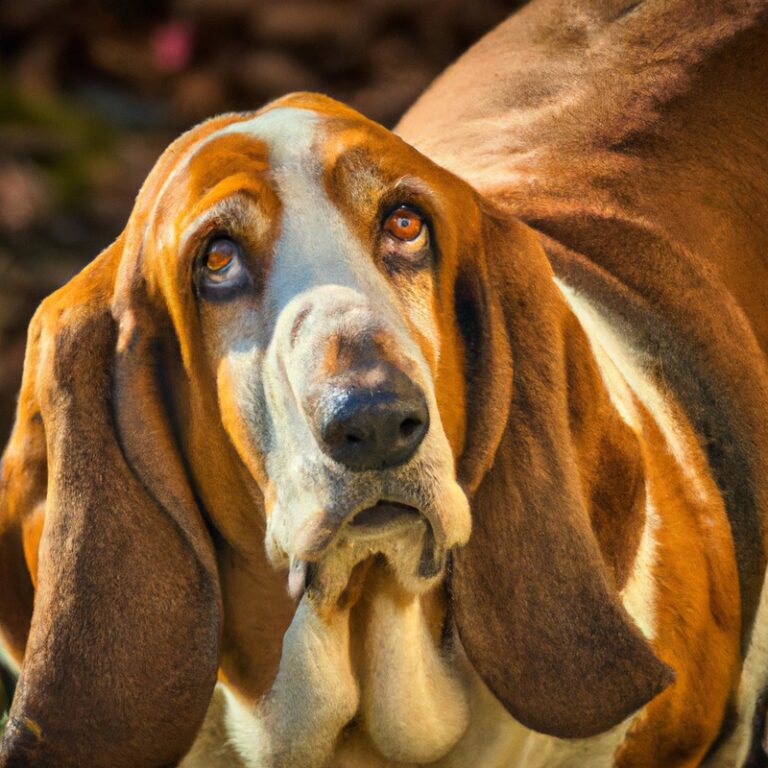Are Basset Hounds Prone To Excessive Snoring, Drooling, Howling, And Digging?
Key Takeaways:
- Basset Hounds have a genetic predisposition for excessive snoring due to their unique facial structure and elongated soft palate.
- Drooling is common among Basset Hounds due to their loose-hanging lips and jowls, which can be more pronounced after eating or drinking.
- Basset Hounds have a tendency to howl, especially when they are bored, lonely, or seeking attention.
- Digging behavior is prevalent in Basset Hounds as it is an instinctual trait inherited from their hunting ancestors.
Have you ever wondered what it would be like to live with a Basset Hound? Well, let me tell you, it’s a wild ride! These lovable and incredibly unique dogs have some interesting quirks that you might want to know about before welcoming one into your home.
From their excessive snoring that can rival a freight train to their drooling that could fill a swimming pool, Basset Hounds are certainly not for the faint of heart.
And let’s not forget about their howling that can make your neighbors think you’ve got a pack of wolves in your backyard. Oh, and the digging…
don’t even get me started on the digging! In this blog, I’ll delve into the causes behind these behaviors and provide you with some tips and strategies to manage and minimize them.
So, buckle up and let’s dive into the fascinating world of Basset Hounds and their unique behaviors!
| Behavior | Basset Hounds |
| Excessive Snoring | Yes |
| Drooling | Yes |
| Howling | Yes |
| Digging | Yes |
Excessive Snoring in Basset Hounds
Causes of Excessive Snoring in Basset Hounds
Excessive snoring in Basset Hounds can be caused by a few factors. One common cause is their unique anatomy, including their long soft palates and narrow nasal passages.
These structural characteristics can restrict airflow, leading to snoring.
Another possible cause is obesity, as extra weight can put pressure on the airways and contribute to snoring. Allergies, respiratory infections, and certain medications may also play a role.
Regular veterinary check-ups and maintaining a healthy weight can help manage and minimize excessive snoring in Basset Hounds.
Managing and Minimizing Excessive Snoring in Basset Hounds
To manage and minimize excessive snoring in Basset Hounds, there are a few steps you can take. Firstly, ensure that your Basset Hound maintains a healthy weight, as obesity can exacerbate snoring.
Secondly, provide a comfortable sleeping environment with good ventilation.
Thirdly, consider elevating your dog’s head while they sleep, as this can help keep their airways open. Finally, if the snoring persists or is accompanied by other symptoms, it’s best to consult with a veterinarian for further guidance and potential treatment options.
Drooling Behavior in Basset Hounds
Understanding the Reasons Behind Drooling in Basset Hounds
Basset Hounds are known for their drooling tendencies, and there are a few reasons behind this behavior.
Firstly, their loose and heavy lips can cause saliva to gather and drip.
Additionally, Basset Hounds have large jowls and a loose facial skin, which also contributes to the drooling.
Another reason is their natural anatomy, as Basset Hounds have more saliva glands than other dog breeds.
It’s important to note that not all Basset Hounds drool excessively, but if your pup does, it’s completely normal and nothing to be concerned about.
Just be prepared with a towel or bib!
Tips for Managing and Controlling Drooling in Basset Hounds
Drooling is a common trait in Basset Hounds, but there are some ways to manage and control it.
Here are some tips:
- Keep your Basset Hound hydrated: Proper hydration can help reduce drooling.
- Use a bib or drool towel: Place a bib or towel around your Basset Hound’s neck to catch the drool and keep them clean.
- Regular dental care: Maintaining good oral hygiene can minimize excessive drooling. Brush your Basset Hound’s teeth regularly and schedule professional dental cleanings.
- Use a raised feeding bowl: Elevating your Basset Hound’s food and water bowls can help prevent excess drooling while eating or drinking.
- Regular grooming: Keeping your Basset Hound’s facial folds clean and dry can help reduce the buildup of saliva and minimize drooling.
- Consult your vet: If your Basset Hound’s drooling is excessive or accompanied by other symptoms, it’s essential to consult with your veterinarian for a proper diagnosis and further guidance.
Remember, managing and controlling drooling in Basset Hounds may require a combination of these tips and some patience, as it is a natural aspect of their breed.
Howling Behavior in Basset Hounds
Why do Basset Hounds Howl?
Basset Hounds howl for several reasons.
One reason is their strong hunting instinct.
They may howl to communicate with other dogs or to alert their owners of something they’ve spotted.
Boredom or loneliness can also trigger howling in Basset Hounds.
They may howl as a way to seek attention or alleviate their anxiety.
Additionally, some Basset Hounds may howl in response to certain sounds or music.
It’s important to understand that howling is a natural behavior for this breed, but there are ways to minimize and control it.
Ways to Minimize and Control Howling in Basset Hounds
To minimize and control howling in Basset Hounds, try the following strategies:
- Provide mental and physical stimulation: Engage your hound in regular exercise and play to keep them mentally and physically stimulated, reducing the likelihood of boredom-induced howling.
- Establish a consistent routine: Basset Hounds thrive on routine, so establish a daily schedule for feeding, exercise, and rest to help minimize stress and anxiety that can trigger howling.
- Create a calm environment: Ensure your hound has a quiet and comfortable space, free from excessive noise or disruptions. This can help reduce their need to howl.
- Use positive reinforcement training: Reward your Basset Hound with treats and praise when they exhibit calm and quiet behavior, reinforcing positive habits while discouraging unnecessary howling.
- Seek professional help if necessary: If your Basset Hound’s howling persists despite your efforts, consider consulting a professional dog trainer or animal behaviorist for additional guidance and support.
By incorporating these strategies into your hound’s daily routine, you can help minimize and control howling in Basset Hounds.
Digging Behavior in Basset Hounds
Reasons Behind Digging Behavior in Basset Hounds
Basset Hounds have a natural instinct to dig, which can be attributed to several reasons. One reason is their hunting background as scent hounds.
Digging allows them to follow scents and trace prey.
Another reason is boredom or lack of mental and physical stimulation. If they don’t have enough exercise or mental challenges, they may resort to digging.
Additionally, anxiety, stress, or a desire to escape can also lead to digging behavior.
Understanding these reasons can help you address and redirect their digging instincts in a positive way.
Strategies to Prevent and Redirect Digging in Basset Hounds
To prevent and redirect digging in Basset Hounds, there are several strategies you can try:
- Provide mental and physical stimulation: Basset Hounds are active and intelligent dogs, so keeping them engaged with toys, puzzles, and regular exercise can help reduce their urge to dig.
- Create a designated digging area: Set aside a specific spot in your yard where your Basset Hound is allowed to dig. Fill it with sand or loose soil and bury toys or treats to encourage them to dig there instead of your flowerbeds.
- Use deterrents: Apply pet-safe deterrents like cayenne pepper or citrus sprays to areas where you don’t want your Basset Hound to dig. The taste and scent can discourage them from digging there.
- Supervise and redirect: Keep an eye on your Basset Hound when they are outside and redirect their attention if they start digging inappropriately. Offer them a chew toy or engage them in play to distract them from digging up your garden.
Remember, consistency and positive reinforcement are key when trying to prevent and redirect digging behavior in Basset Hounds. Patience and understanding will go a long way in helping your furry friend develop better habits.
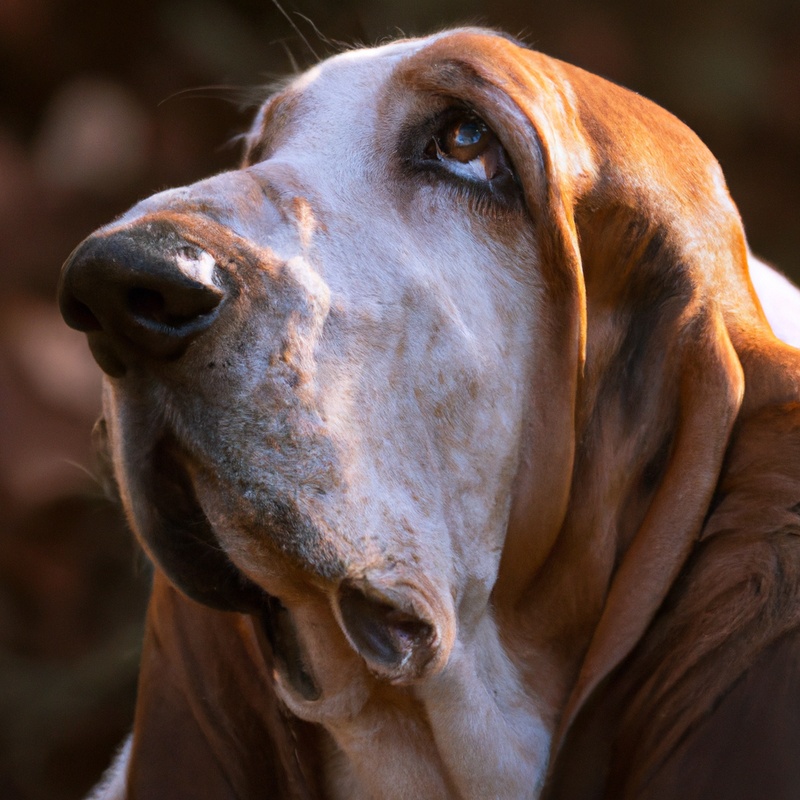
Final Verdict
Basset Hounds are indeed prone to excessive snoring, drooling, howling, and digging.
These behaviors are rooted in their genetic makeup and physical characteristics.
While these behaviors may be a natural part of being a Basset Hound, there are ways to manage and minimize their impact.
By understanding the causes and implementing practical strategies, owners can provide a comfortable and well-adjusted environment for their Basset Hound.
Overall, being informed and proactive can help ensure a harmonious relationship with these lovable and unique dogs.

